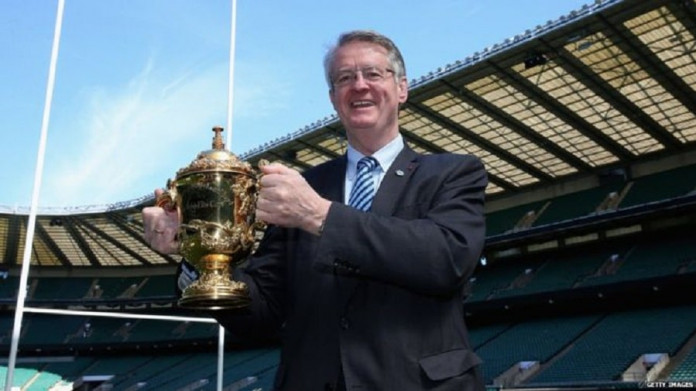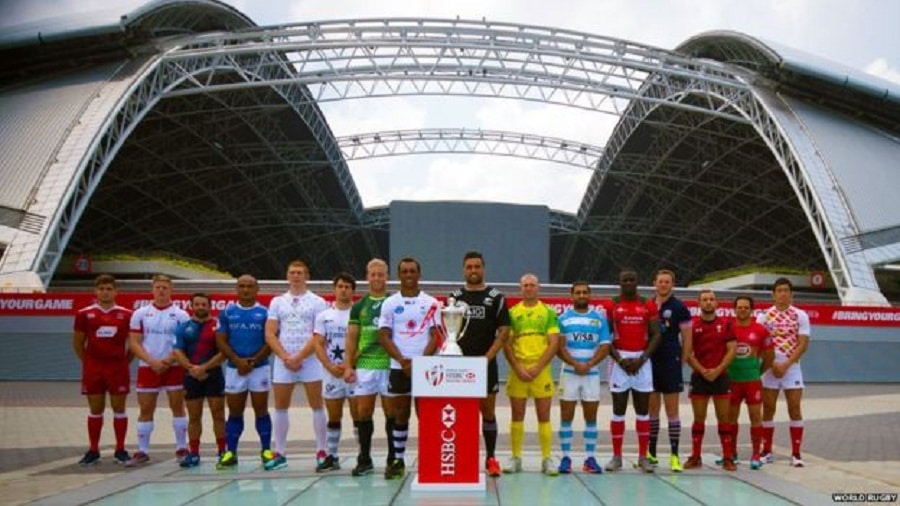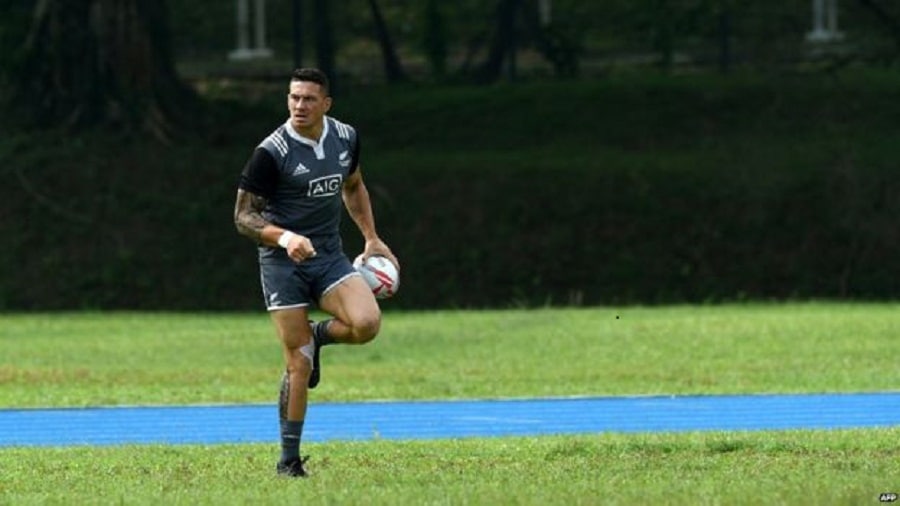
When Bernard Lapasset first met the International Olympic Council to negotiate the reinstatement of rugby union in the Rio Games, he addressed them in four languages.
Needless to say, they came away impressed, and it is that internationalist approach which has made the World Rugby chairman one of the most pivotal figures in the development of the sport.
Since taking office in 1995, he has guided rugby from the amateur to professional leagues, brought nations like Argentina and the US into the fold and generated record-breaking growth culminating in last year’s World Cup.
And now, he’s making a final, ambitious play for Asia before relinquishing his role in May.
“We are not just a sport for Europe and the southern hemisphere,” the 68-year-old Frenchman told me. “Asia is the future for the game. I am sure it will be the future of the game.”
Nothing illustrates this more than the deal he signed this month with Alibaba chairman Jack Ma, who is also China’s second richest man.
The multi million dollar development and sponsorship agreement aims to expand rugby in China at both the grassroots and professional levels over the next ten years.
Mr Ma’s sports unit will also get exclusive broadcast rights for its internet platform and help organise more rugby events in the country.
“When we open the market in China, it will open the market in all of Asia,” Mr Lapasset said.
“Development is different in every region. We have to adapt the solutions to the different cultures that we have in front of us.
“Rugby is not the same in Africa as it is in Europe, and is not in the same in South America and North America. It will be different as well in China and in Asia. We need to adapt the solutions country by country.”
The Sevens
Rugby Sevens, the short-form of the game being included at the Rio Olympics, is a huge part of his strategy.
First invented by a butcher in Melrose, Scotland, in 1883, the sevens is regarded as faster – and some say easier to understand – than the core rugby union game with a team of 15 players.
Australian rugby legend and former Wallabies captain Stirling Mortlock calls it a “great vehicle” for developing countries to accelerate their rugby programmes.
“In Asia there is so much potential and we’re only seeing the start of it. You don’t need massive behemoth forwards and a huge amount of players,” he told me, adding that “it’s an easy way for females to get involved as well as males.”
But can rugby really pick up in Asia given the overwhelming popularity of football? That’s not to mention the myriad of other sports competing for attention, like golf, tennis and badminton.
The business and investment community increasingly seems to be saying yes.
Money matters
Banking giant HSBC has sponsored the World Rugby Sevens series since 2011 and recently renewed the contract for another four years.
“We want to associate with fast-growing sports in emerging markets that cater to both men and women yet allow us to be quite dominant,” global head of sponsorship and events Giles Morgan said.
“It is hard to find sports that aren’t cluttered with many other sponsors in financial services.”
Singapore is hoping to cash in on the success of the event to generate more tourism dollars. After a ten-year hiatus, the city-state is now the second Asian city on the sevens circuit after Hong Kong.
New Zealander and Coliseum Sports Media Group chief executive Tim Martin has based his business here and is also betting big on the oval ball game.
He’s invested millions to buy the regional rights to the Super Rugby tournament and has launched a digital streaming platform called Rugby Pass.
“I’m committed,” he said. “Right now it is the most exciting sport in Asia in terms of its commercial development potential.”
“The football opportunity is billions and that’s pretty scary. That’s way too scary for a little boy from Auckland. But rugby is emerging and so there is chance still to create a business”.
‘Expat game’
World Rugby also plans to spend more in Asia as part of its continued efforts to develop the market.
They currently have around 400,000 registered players in the region and aim to increase that to one million by 2019.
The organisation invested almost £9m ($13m) in Asia between 2012 to 2015, ranging from high performance development to regional competitions, Mr Lapasset said.
But it’s not all rosy. Critics say the money doesn’t trickle down to the grassroots and that more needs to be done to raise the overall standard of the local leagues and national teams.
James Sterling used to work for a non-profit organisation that promotes rugby in Cambodia, particularly among disadvantaged and orphaned children.
From 1500 registered players there are now none. He told the BBC: “What I’ve found from the meetings that I’ve had with World Rugby, and other people around the region have had with them, is that they’re more interested in revenue generation and player numbers.”
He claims the most they ever received from the organisation was $5,000.
Another challenge the sport faces in Asia is the perception of it as rough-and-tumble, elitist and only filled with expatriates. Some say that’s changing.
Australian advertising executive Shane Dewar has been playing rugby since he was 12 years old and believes the sport is finally catching on among locals.
“One of the reasons that rugby is so popular in the home countries of the many expats playing rugby here is that they have grown up with the sport,” he said.
“We also had access to see some of the best players in the world playing locally for professional and international sides.
“The populist view is that rugby is only for large-framed people, and that smaller players will never compete, but I think Japan have shown that with a style and identity that suits their smaller physiques, they can compete at the top level.”
On a sweltering day in Singapore, I headed down to a local stadium to watch the New Zealand All Blacks sevens team train for the eighth leg of the series.
The All Blacks are considered the sport’s most powerful brand and one firm estimates they could be worth half a billion US dollars by 2023, following their World Cup win last year.
Despite their impressive credentials, it’s pretty fair to say my taxi driver, or the average man on the street, would still be hard-pressed to name many of their players.
Rugby union may be the world’s fastest-growing team sport, but former All Blacks captain Richie McCaw is still not as recognisable here as footballer Cristiano Ronaldo.
Mr Lapasset, who is stepping down to head Paris’s bid for the 2024 Olympics, remains optimistic though.
“Every year we increase the total amount for development for rugby around the world. One was Argentina, that is done. Second one was USA, that is done. Now it is Asia.”
“We are headed in the right way,” he said with a smile.


























